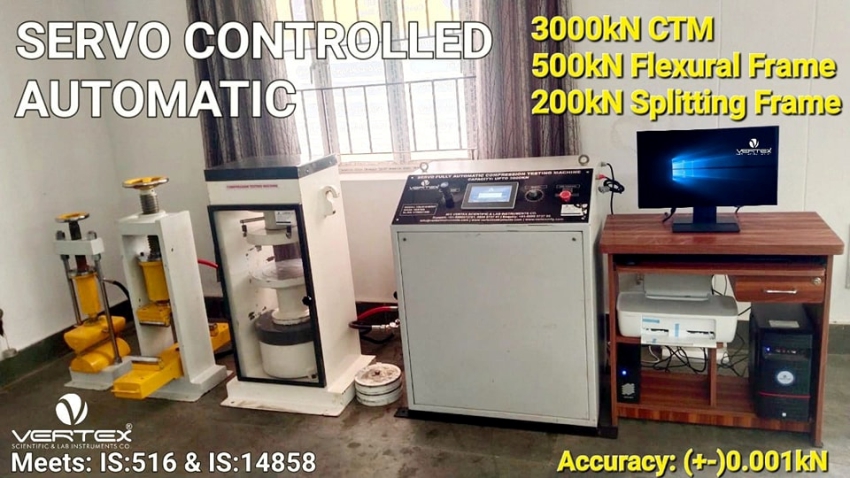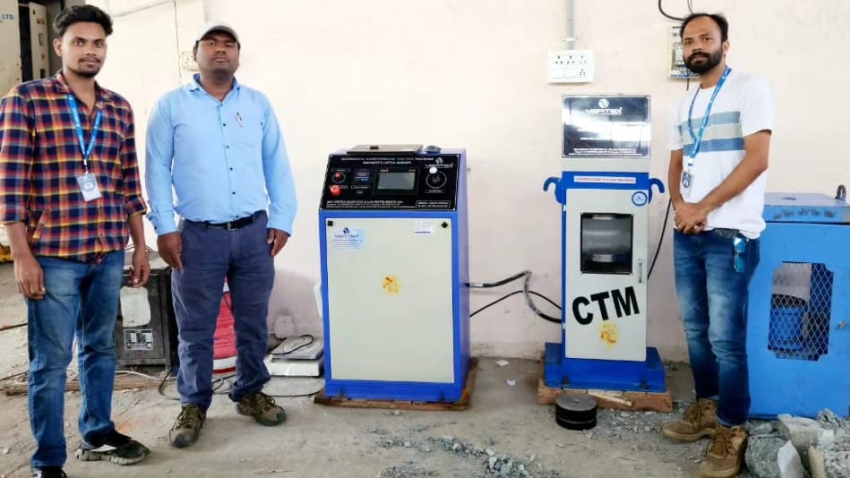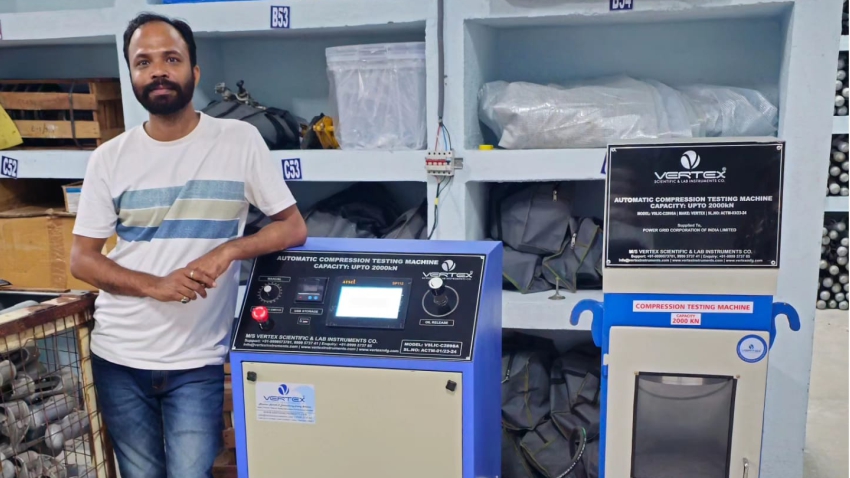Precision through Automation
At the heart of this machine lies a sophisticated servo control system. This system is responsible for controlling and regulating the applied load with an unparalleled level of precision. The result? Consistent and reliable test results, each and every time.
Real-time Data Acquisition
In the world of quality assurance, data is king. The Servo Controlled Automatic Compression Testing Machine doesn’t disappoint. It offers real-time data acquisition, allowing engineers and researchers to monitor and analyze test results as they happen. This capability is indispensable for quick decision-making and immediate adjustments when necessary.
User-friendly Interface
Complexity should never be a barrier to productivity. This machine boasts a user-friendly interface that makes operation a breeze. Engineers and technicians can easily set parameters, initiate tests, and retrieve data with minimal training.
Precise Testing for Unwavering Quality Assurance
When it comes to ascertaining the quality of materials used in construction, civil engineering, and various other industries, precision is paramount. The Servo Controlled Automatic Compression Testing Machine emerges as an indispensable tool in this pursuit. Unlike conventional testing methods that may be prone to human error, this state-of-the-art machine ensures the highest level of accuracy.
Versatility Beyond Compare
One of the defining characteristics of this technology is its remarkable versatility. Whether you are dealing with concrete, cement, asphalt, or any other material, this machine can adapt to the specific requirements of your project. This adaptability makes it an invaluable asset across a multitude of industries.
Precision through Automation
At the heart of this machine lies a sophisticated servo control system. This system is responsible for controlling and regulating the applied load with an unparalleled level of precision. The result? Consistent and reliable test results, each and every time.
Precise Pace Rate Control
Fully automatic machines offer unparalleled precision in pace rate control. They can apply loads at a consistent and adjustable rate, ensuring accurate and repeatable results.
Multiple Test Modes
Fully automatic machines offer various test modes, including constant load rate, constant deformation rate, and stress relaxation. This versatility accommodates a wide range of testing requirements.
Real-time Data Acquisition
In the world of quality assurance, data is king. The Servo Controlled Automatic Compression Testing Machine doesn’t disappoint. It offers real-time data acquisition, allowing engineers and researchers to monitor and analyze test results as they happen. This capability is indispensable for quick decision-making and immediate adjustments when necessary.
Applications
Fully automatic pace rate control compression testing machines find applications in diverse industries.
1. Construction
In the construction industry, these machines are used to test the compressive strength of concrete, ensuring the safety and durability of structures.
2. Aerospace
Aerospace engineers rely on compression testing to evaluate the performance of materials used in aircraft components, from landing gear to fuselage materials.
3. Automotive
Automotive manufacturers use these machines to assess the strength of materials for vehicle safety and performance.
4. Material Research
Researchers in material science use fully automatic machines to investigate the properties of new materials and alloys.
Benefits
The adoption of fully automatic pace rate control compression testing machines offers several advantages:
- Accuracy: Precise pace rate control ensures reliable and accurate test results.
- Efficiency: Automation reduces testing time and minimizes the need for manual intervention.
- Data Integrity: Real-time data monitoring eliminates the risk of human error in data collection.
- Versatility: Multiple test modes cater to a wide range of testing requirements.
- Ease of Use: Intuitive interfaces make these machines accessible to a broader range of users.
Conclusion
In the world of material testing, fully automatic pace rate control compression testing machines have emerged as a cornerstone of precision and efficiency. Their ability to provide accurate, real-time data across various industries ensures the safety and reliability of countless products and structures. As technology continues to advance, we can expect even more remarkable innovations in material testing, further enhancing the quality and safety of the world around us.




